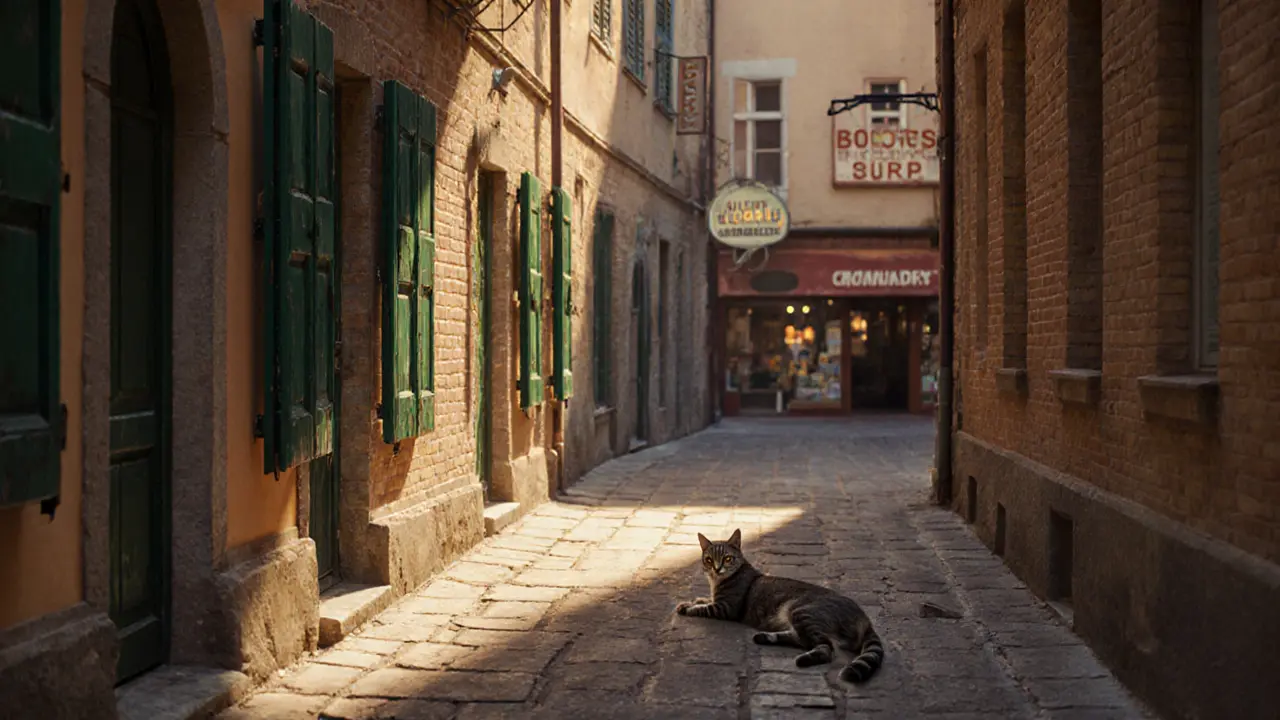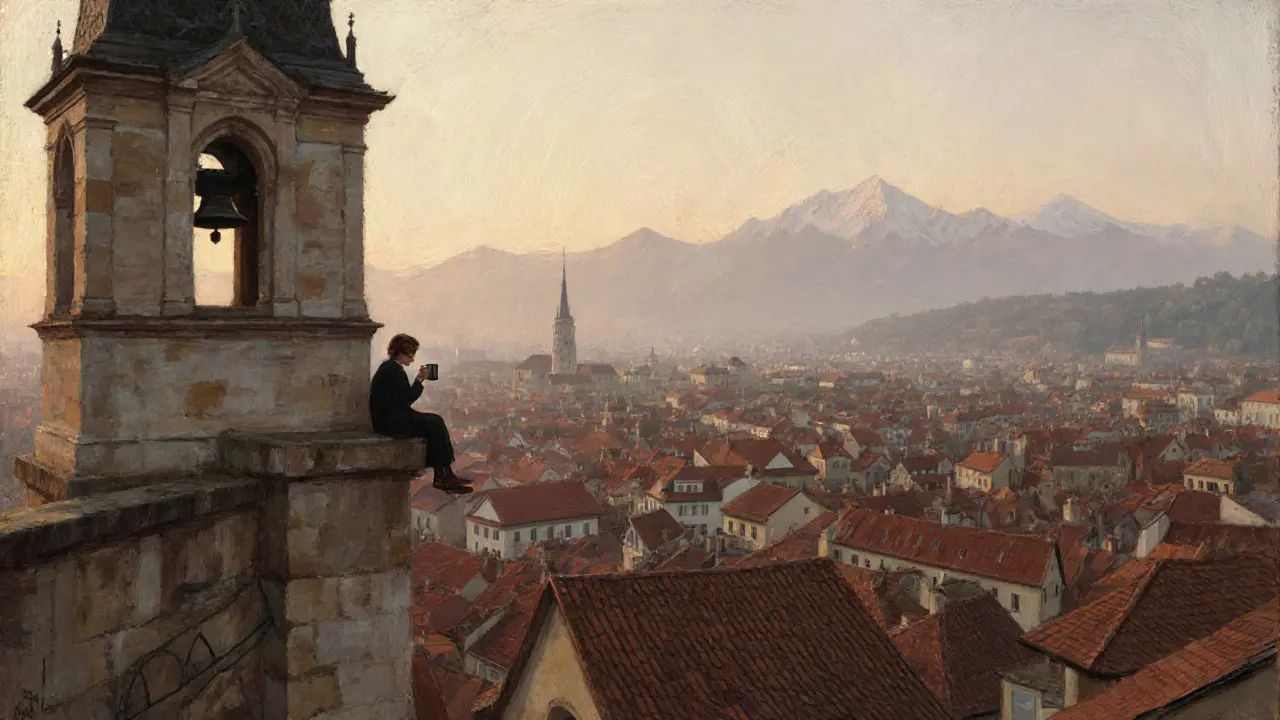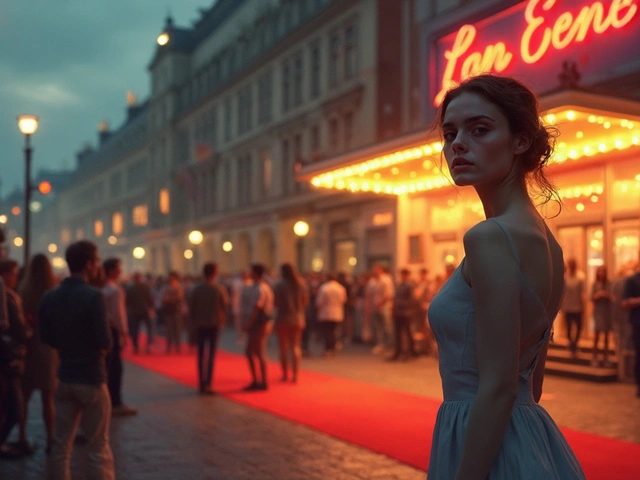Lexy Roxx’s Top Munich Inspirations: Places, Vibes, and Hidden Gems That Shape Her Style

- Maximilian Von Stauffenberg
- 22 November 2025
- 0 Comments
When Lexy Roxx talks about Munich, she doesn’t just mention the beer halls or the Oktoberfest crowds. She talks about quiet courtyards where the morning light hits old stone walls, about the smell of fresh bread from a corner bakery at 7 a.m., about the way the Isar River looks when the fog rolls in just right. For her, Munich isn’t a backdrop-it’s a mood, a rhythm, a place that quietly changed how she sees the world.
The Hidden Courtyards of Schwabing
Most tourists stick to Marienplatz. Lexy Roxx? She spends her mornings wandering the backstreets of Schwabing. There’s a tiny courtyard on Leopoldstraße, tucked between a vintage bookshop and a silent piano repair studio, where the only sound is a cat stretching in the sun. She calls it her reset spot. No one takes photos there. No signs point to it. You just stumble upon it. That’s the kind of place she loves-unpolished, real, untouched by Instagram filters.
She says the architecture here-old brick facades with faded green shutters, wrought-iron balconies hanging over narrow alleys-reminds her of her grandmother’s house in rural Texas. Not the same style, but the same feeling: time slowing down, things being made to last.
St. Peter’s Church Bell Tower at Sunrise
She climbs the 300 steps to the top of St. Peter’s Church every weekend before the city wakes up. Not for the view-though the skyline of Munich spread out below is stunning-but for the silence. The bells don’t ring until 8 a.m., so she gets to stand there alone, listening to the city breathe. She says the view from the top isn’t about landmarks. It’s about the way the rooftops ripple like waves, how the red tiles glow under early light, how the distant Alps look like a pencil sketch on the horizon.
She brings a thermos of black coffee and sits on the stone ledge. No phone. No music. Just the wind and the distant hum of a tram starting up. She says this is when she writes her best lyrics.
English Garden’s Secret Riverbank
Everyone knows the English Garden for surfers on the Eisbach. Lexy Roxx avoids them. Instead, she walks downstream, past the Chinese Tower, until she finds a quiet patch of grass where the river bends gently around a cluster of willows. There’s no path here, just worn-down earth from years of locals coming to read, nap, or just sit.
She says this spot feels like a secret only the city’s quiet souls know. She’s seen old men fishing with bamboo rods, students sketching the water, a woman feeding ducks with homemade bread. No one talks. No one rushes. She says this is the only place in Munich where time doesn’t feel like it’s running out.

The Local Markets That Don’t Sell Souvenirs
She skips the tourist markets. Instead, she heads to the Viktualienmarkt early on a Tuesday morning. Not for the cheese or the sausages, but for the people. The fishmonger who remembers her name. The baker who slips her a warm pretzel when she’s running late. The elderly woman who sells handmade linen napkins and always asks if she’s been sleeping well.
She says these small interactions-no big gestures, no forced smiles-are what keep her grounded. She doesn’t buy much. But she always leaves with a story. Once, she got into a 20-minute conversation with a retired violinist about the acoustics of old churches. She still quotes him: "Sound doesn’t live in the walls. It lives in the silence between them."
That One Bookstore on Sendlinger Straße
There’s a tiny used bookstore on Sendlinger Straße with no sign. Just a wooden door and a single window with a few dusty novels stacked in the corner. Inside, the air smells like paper, old leather, and coffee. The owner, a man in his 70s with thick glasses and a permanent frown, doesn’t speak unless you ask for something specific.
Lexy Roxx went in looking for a German poetry book. She left with a 1923 edition of Rilke’s letters, a worn copy of Virginia Woolf’s diary, and a handwritten note tucked inside the Rilke book: "For the one who listens to silence. - E." She still carries it with her. She says that note changed how she reads. Now, she doesn’t just read words. She reads pauses.

Why Munich Feels Different Than Other Cities
Munich doesn’t shout. It doesn’t need to. There’s no neon, no billboards, no loud music blasting from street corners. Even the beer gardens have a quiet dignity. People don’t come here to be seen. They come to be still.
Lexy Roxx says that’s why she keeps coming back. It’s not about the history or the castles or the museums. It’s about the space the city gives you-to think, to feel, to be alone without being lonely. In a world that’s always pushing you to post, perform, produce, Munich offers something rare: permission to do nothing.
She doesn’t post about it. She doesn’t tag locations. She doesn’t even take many photos. But when she’s on tour and the crowds get too loud, she closes her eyes and remembers the smell of wet stone after rain in the Englischer Garten. And for a moment, she’s back.
What She Wishes More People Knew
She says most visitors miss the real Munich because they’re looking for the postcard version. They want the Alps in the background, the lederhosen, the giant steins. But the soul of Munich lives in the small things: the way the tram driver nods at you when you board, the old woman who waters her window boxes every morning, the sound of church bells echoing across the river at dusk.
She says if you want to feel what Munich is really like, go early. Go alone. Don’t follow the map. Let yourself get lost in the quiet corners. Sit on a bench. Watch the light change. Listen to the silence between the sounds.
That’s how you find it.
Is Lexy Roxx from Munich?
No, Lexy Roxx isn’t from Munich. She’s originally from Texas, but she’s spent years traveling through Europe, and Munich became one of her most meaningful stops. She doesn’t live there, but she returns regularly because it gives her space to recharge and create.
Can I visit the same places Lexy Roxx likes?
Yes, absolutely. All the places she mentions-the courtyard in Schwabing, St. Peter’s bell tower, the riverbank in the English Garden, the bookstore on Sendlinger Straße-are real and open to the public. They’re not hidden in the sense of being secret or exclusive. They’re just quiet, and most tourists don’t find them because they’re not on the usual lists.
What’s the best time of year to visit Munich like Lexy Roxx?
Late spring (May to June) and early autumn (September to October) are ideal. The weather is mild, the crowds are thinner, and the light is soft. Summer is busy, and winter can be cold and gray. But even in winter, if you go early in the morning before the sun rises, you’ll find the same quiet magic she talks about.
Does Lexy Roxx perform in Munich?
She doesn’t perform regularly in Munich, but she has played intimate shows at small venues like the Muffathalle and the Jazzclub Unterfahrt. These aren’t big concerts-they’re quiet, acoustic nights where the audience is small and the focus is on the music, not the spectacle. If you want to catch her, check local listings in advance-she rarely announces dates in advance.
Why doesn’t she post about these places on social media?
She believes some places lose their meaning when they become public. She doesn’t want these spots to turn into tourist traps. For her, Munich’s magic lies in its quietness, and sharing it too widely would change that. She keeps it personal-not out of exclusivity, but out of respect.
What to Do Next
If you want to experience Munich the way Lexy Roxx does, start with one thing: wake up early. Go to the English Garden before 8 a.m. Sit by the river. Don’t take a photo. Just listen. Then, walk to Viktualienmarkt and buy a single pretzel. Talk to the baker. Don’t rush. Let the city unfold slowly.
You won’t find a hashtag. You won’t find a tour guide. But you might find something better-the quiet rhythm of a city that doesn’t need to be famous to be beautiful.



